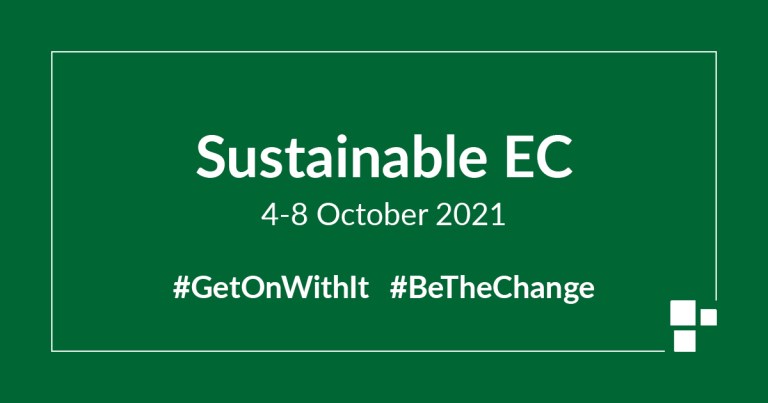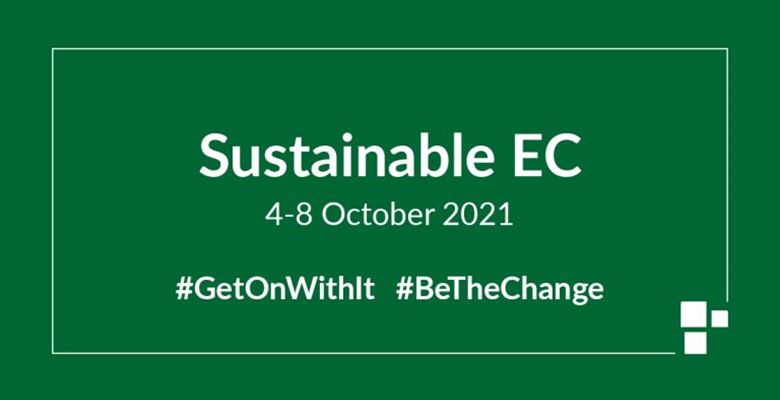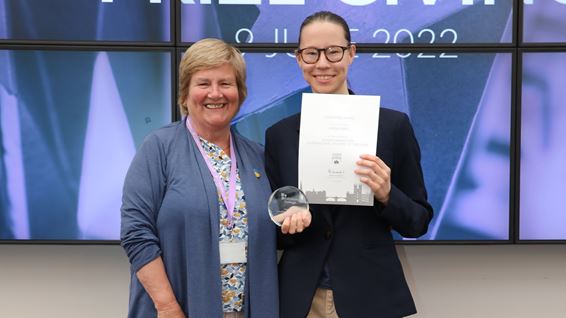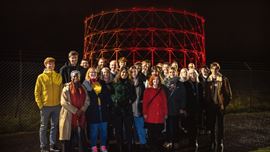Sustainable EC

Today marks the beginning of Sustainable EC, a week in which we look ahead to COP26, take pride in our achievements to date in reducing our climate impacts, and look forward to taking the next steps to achieving our aim of becoming a net zero college by 2030.
Throughout this week our students will be taking part in Sustainability-themed classes with their lecturers, and we’ll be highlighting the work of our Students’ Association (ECSA) and Community Gardens team, as well as reflecting on what more Edinburgh College as a community needs to do in response to the Climate Emergency.
In 2014, our Sustainability Officer Martin Webb joined the College and quickly began calculating our carbon footprint. We caught up with Martin to get the full picture on the College’s current position.
Where are we now?
In 2014, our operational emissions were calculated as 7271 ‘tonnes of Carbon Dioxide equivalent’ (tCO2e).
In 2020-21 our footprint has shrunk to 3126 tCO2e. That’s a 57% reduction from 2013-14. Whilst there is no doubt that COVID-19 had a helping hand in the reduction last year, that impact is offset by the inclusion of staff homeworking emissions in the calculation.
All in all, that is significant progress towards our target of cutting emissions by 75% by 2024-25 and to be Net Zero in 2030.
How have we achieved this reduction?
Much of it is behind the scenes, and students and staff in the College wouldn’t necessarily have noticed any changes. For example, upgrading boilers; installing a Combined Heat and Power plant at Granton; installing solar panels; and many other technical alterations to the kit in our buildings.
Things that may have been noticed were the installation of LED lighting in many parts of the College (not yet at Granton, as it’s on a sophisticated Lighting Management System which is already quite efficient). As well as this, our Estates team has been working to ensure our Building Management Systems (BMS) are improved and work effectively. BMS is like a very sophisticated version of the programmer you have to control your heating at home, but which controls a much wider range of equipment.
What are the next steps?
So, the next logical question might be…are we on track to meet our targets? Literally, the £million question, as that’s approximately what we spend every year on energy.
The challenge we are left with is that efficiency projects are more expensive and less impactful than previously. So, in answer to the question, we’re not sure but we do expect the rate of reduction to slow significantly and our efforts will have to accelerate.
Perhaps the most pressing issue relates to heating. Nearly all of our heating comes from gas, and our gas consumption has remained stubbornly high. This is true for pretty much every organisation (and individual) in the UK. Whilst there is a lot of talk in the media about installing heat pumps and using district heating – we are not yet quite ready to implement at scale for a variety of technical and financial reasons. That will change and we will almost certainly adopt these technologies in the coming years. In terms of meeting targets – the key will be when.
So, looking towards the future, what is the College doing to reduce carbon and meet its targets? We are currently participating in a Scottish Government programme called the ‘Non-Domestic Energy Efficiency framework’, which will identify a range of investments we can make to improve the efficiency of the College infrastructure. We will also be looking to the Scottish Government to provide grant funding for further efficiency investments.
Great strides have been made by our College and within Scotland to reduce carbon emissions. But we are at a point when continuing that trend is increasingly challenging.
Really this is just a reflection of the challenges facing society at large, and if we are to meet our climate commitments we will need to see a complete change in how we produce and use energy.
Perhaps, the most important point to reflect on is that using less energy is by far the best option. Renewables often seem to hog the limelight, but however important they are, they can only deliver so much of the change that is needed. Much of the change must come from our behaviour.
We must use less!




